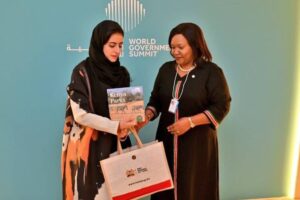By Nicholas Olambo
Young Kenyans who were recruited as enumerators have been trained ahead of the census exercise scheduled for 24th and 25th august. Monday 26th has been declared a public holiday to ensure that full inclusivity is facilitated. Persons with disabilities, homeless and pastoral communities must be included like it was done in 2009 where the figures were never made public.
Unlike the previous ones, the 2019 census will eliminate paper work and embrace digital technology. The gadgets are said to have been assembled locally and exercise is 99% funded by the government. This is the first census since the passing of the new law. More emphasis will be on the first two days of the week long exercise that has also affected the school calendar. Opening days have been pushed by a week to September 2nd 2019 to ensure effective head count.
Census main objective is to help the government plan and equitably distribute resources across 47 counties and deeper into the grass root levels. This census in particular, comes days after President Uhuru Kenyatta signed into law, a bill that gives more powers to Kenya National Bureau of Statistic (KNBS) in information sharing and management.
In their website, KNBS spells it that everyone must participate in the exercise as census information helps in determining locations for schools, hospitals, roads and more. Conducted every ten years and with expectations to meet international guidelines which advocate for values of professionalism, transparency, accountability, and integrity to maintain credibility and public confidence, Kenyans are waiting to see the transparency. I doubt if we got it right in 2009 and definitely that will affect how people will embrace the 2019 version.
The figures of 2009 census were never made public, only rumor came out that the population is 44 million or there about. Scattered voices that tried to push for the official figures to be made public went mute without results. This, the pundits blamed on the political interest of the regime, power brokers and power hungry individuals who wanted to take over or keep power to themselves.
On the run up to the 2013 elections individuals close to the regime coined the ‘tyranny of numbers’ myth to hood wink Kenyans, ‘evade’ ICC cases and capture power. That further divided the country deeper along ethnic boundaries. Figures may not be released in ethnic groupings but it satisfies an ordinary Kenyan to at least know the general population of their country not speculations. Only politicians with easy access to information get these numbers and use them to their political advantage. Kenyans feel cheated after their peace and family time is disturbed by enumerators at night.
This is the 6th census in the post-independence Kenya, the first under the new constitution and may be the only one under the ‘Handshake’. Our maturity as a country must be demonstrated in the 2019 version, it must put the people first and politics least and last. It should not be the case but many people are going to participate for fear of defying the government and constitutional requirement but the previous exercises have made no clear sense to them like it does to politicians.
Censuses are now viewed from a political angle more than planning what its intended for. Power brokers and tribal chiefs use the numbers to bargain for power to an extend that the government and tribal leaders lose focus and follow in that bound wagon.
If the exercise met its key objectives, the many strikes would reduce, good roads would not be concentrated in one region and this would not be time we emphasized on including the street families, pastoral communities and persons with disabilities. It should be a norm deeply entrenched in practice unless we are pulling PR stunts with long sentences laced with ‘sweet English’.



















